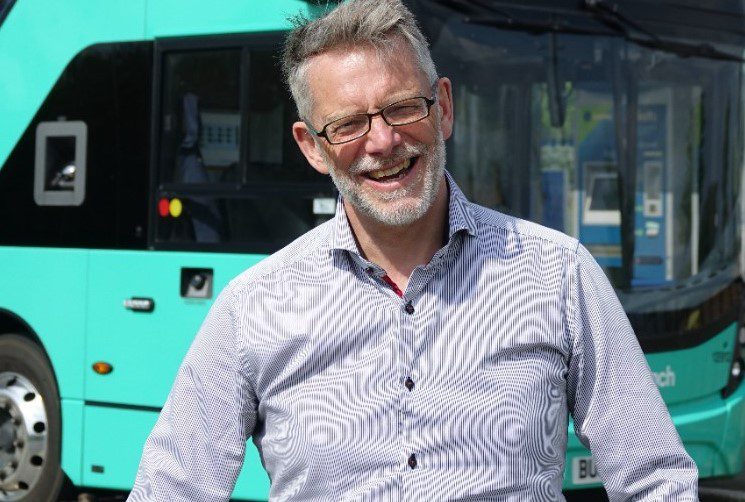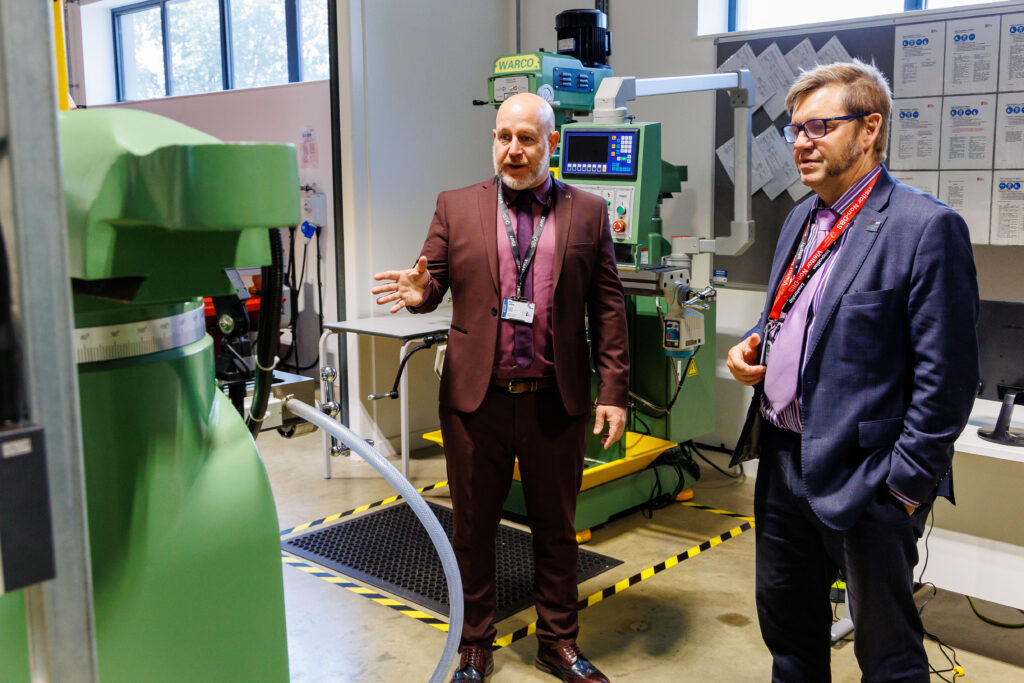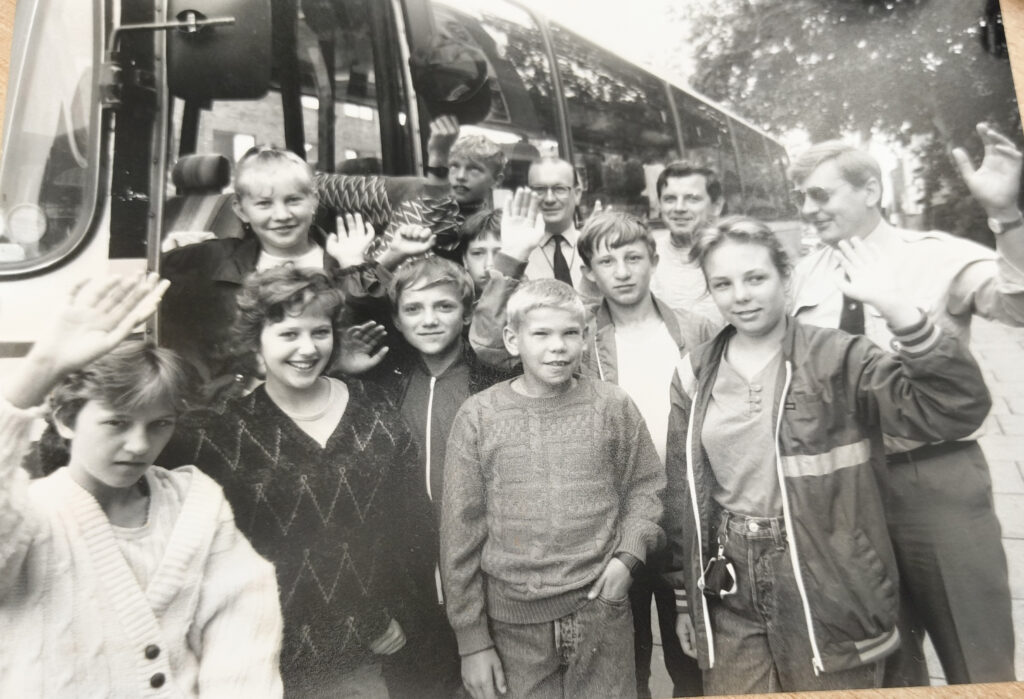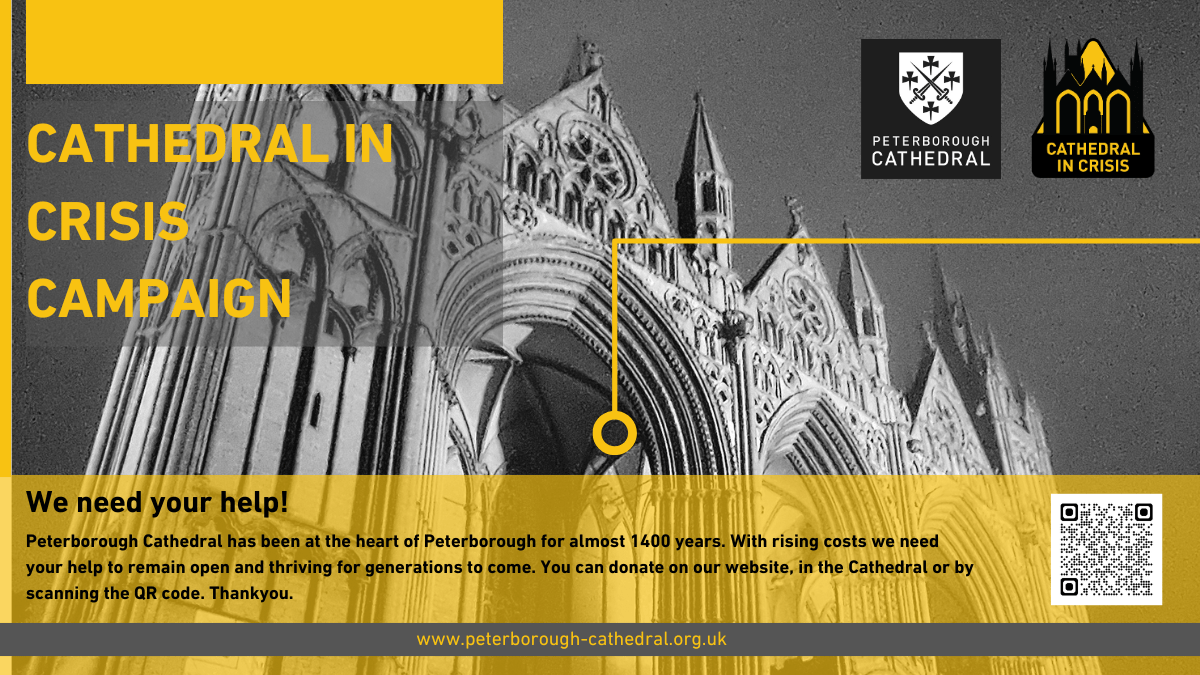I love buses. I have spent over 40 years working in buses and trucks, either repairing them or running them. I started at 16 years old as an engineering apprentice at a bus company when the buses were nationally owed, and since then I have helped run buses in Manchester, London and, since 2018, I have worked in Cambridge, running the buses for Stagecoach across the East region.
I have run buses in commercial environments and regulated environments (such as London), and what I have learned about running buses in those mega-cities of Manchester and London, is just that – it’s a different situation in Manchester and London, with millions of potential customers (and taxpayers) all contributing to the cost of that high service provision, providing bus services to support those high population densities.
Here at Stagecoach East, I have a team of over 800 drivers, engineers, our presentation team and support staff, who also love running buses.
We operate over 12 million miles a year, and our drivers know every pothole, every tight bend, every low-hanging tree and every congestion hot-spot. We are proud too that our customers make over 29 million journeys with us a year.
And we have done that for nearly 30 years in the region – 30 years of operating on the streets of Cambridgeshire and Peterborough.
So, nobody is more pleased than me to hear the Mayor talk about better buses!
Way back in 2017, The Bus Services Act 2017 provided local authorities with powers to reform the bus market, through either Enhanced Partnership schemes or the option to franchise bus services.
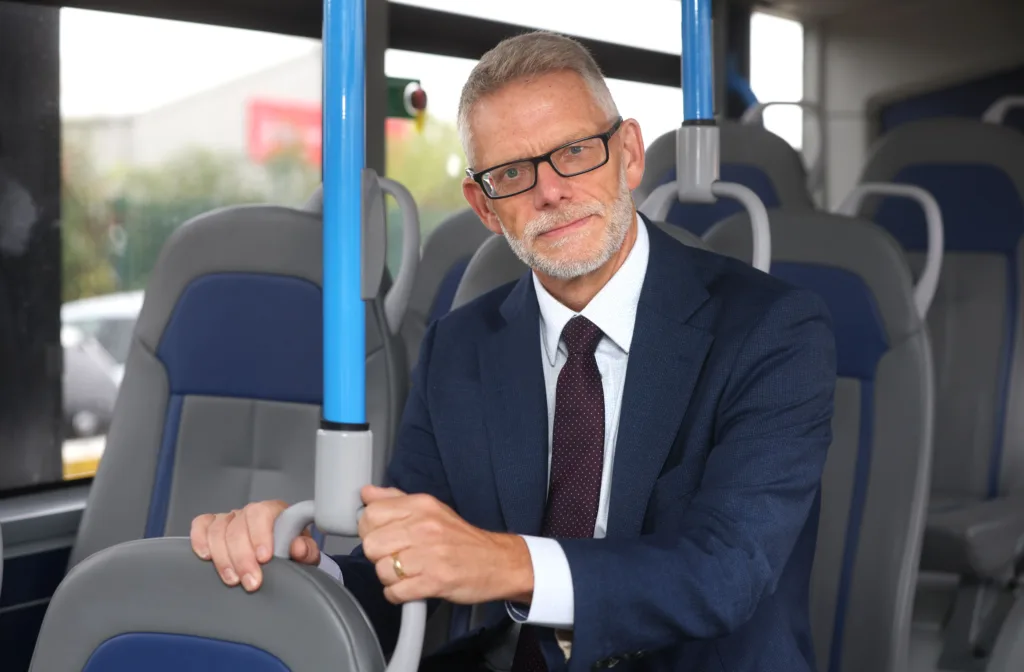
Both options can achieve broadly the same outcomes – the key point of difference is risk: with an Enhanced Partnership the financial risk is shared with bus operators, however, with the franchising option the risk falls entirely on the local authority and taxpayer.
Let’s talk a little about that financial risk. Bus operators have only two sources of income: the customer and the taxpayer.
The maths really matters here: running one bus can cost well over £150,000 every year and will need at least 75,000 customers a year to use that service to cover its cost of operation, whoever bears that risk must then balance the commercial revenue coming in from customers (bus fares) and/or have access to other funding streams to pay for the levels of bus services that policy makers and the electorate decide.
As the largest bus operator in the region, my view is that the decision on Franchising or Enhanced Partnership is one for our elected officials to make. As people who run local buses, we wake up every morning wanting to run the best bus service we can, and it is up to the elected officials to decide on the framework that takes place in.
The franchising option has been on the local agenda since 2018 for the Cambridgeshire and Peterborough Combined Authority. It’s taken 6 years to finally get the case together and move to a formal consultation.

To be honest, we need to get moving and get a decision either way. This has dragged on enough now and it needs to be sorted; bus operators need certainty to invest in vehicles and technology and bus users need to see real improvements to service levels.
Along with other local bus operators, we have worked with the Combined Authority and the Mayor to bring new bus routes to the region, simplified tickets, supported the introduction of the new Tiger £1 fare for under-25’s and brought over 40 electric buses to the region.
Bus operators and the Combined Authority working together at pace, to deliver real improvements to our customers and the bus network, and all this was delivered in a matter of months – not years.
Recent data published by the Office for National Statistics on the number of bus passenger journeys per head of population, shows the top five local authorities for passenger journeys in their area, are all achieving their success through the Enhanced Partnership model (www.gov.uk/government/statistics/annual-bus-statisticsyear-ending-march-2023/annual-busstatistics-year-ending-march-2023).
What I hear from my customers, our drivers, and our independent studies is that what they really want is better bus-stop information and their buses running on time – both of these are already under the control of our local authorities.
Bus stop timetables, the quality of bus stop infrastructure, and the cleanliness of bus stations are already the responsibility of the local authorities.
Although it can be a complex web of ownership: some stops are owned by the local councils, some the Greater Cambridge Partnership, some others by local parish councils, so it’s yet another challenging problem for our elected officials to tackle, take responsibility for and ensure all the bus stops are dressed correctly.
In terms of buses running on time, in reality, irrespective of who controls the bus services, the bus depot, or the local authorities, the challenge will still remain of operating punctual bus services, because once the bus leaves the depot in the morning, their performance is overwhelmingly already in the hands of the local authorities and highways.
We know how important this is: punctuality and reduced journey times are so important when we are trying to rebalance and encourage bus use over the car.
Huge moment for public transport in Cambridgeshire as bus franchising consultation gets under way
As bus speeds slow down, it compounds the problem, as more buses are needed to maintain running times, or timetables have to be changed to reflect the actual running time of the route – both options leading to a circle of decline, as costs either rise, or reduced service frequencies drive customers away.
Hills Road in Cambridge is a prime example, last year between 0800 and 0900 in took 22 minutes to travel to Addenbrookes from the city centre, this year it is taking us 29 minutes!
Congestion in our crowded city and town centres is a huge challenge, and that can only be improved by public policies that promote the use of bus over the car.
There are no secret formulas, we’ve operated in this area for nearly 30 years – so we know the issues – and have great examples across the country of what can work.
These range from improved communication with utilities on roadworks, work on deterring cars in those key areas, parking charges, parking enforcement and planning better use of bus priorities, to working closely with local bus operators who live the bus network every hour of every day.
Exclusive: Cambridgeshire and Peterborough could retain £2 bus fare cap
Again, these are difficult challenges our local officials must tackle.
Supporting rural bus services is also a really important challenge: deciding where, when and how rural services operate rural services will always need public money to support them, the population densities in these areas are just not enough to support a traditional, regular, and realistic bus frequency – the magic comes in being smart to how these services can operate, and again we can look to other areas of the country that have some great ideas to provide practical solutions.
These are challenging and difficult decisions for our elected officials to make, and as I have said previously, whatever the model of ownership ends up being, my team and I will work to deliver the best service we can for our customers, like we have tried hard to do over the past 30 years.
So, I am very pleased that the Mayor Dr Nik Johnson and Combined Authority Board have announced this consultation, and hope that it will prove to be a useful forum to discuss all these issues, with the goal of providing even better bus services for our customers.
Link to CPCA Bus Franchising Consultation: https://cpca-yourvoice.co.uk/bus-franchising-consultation/


